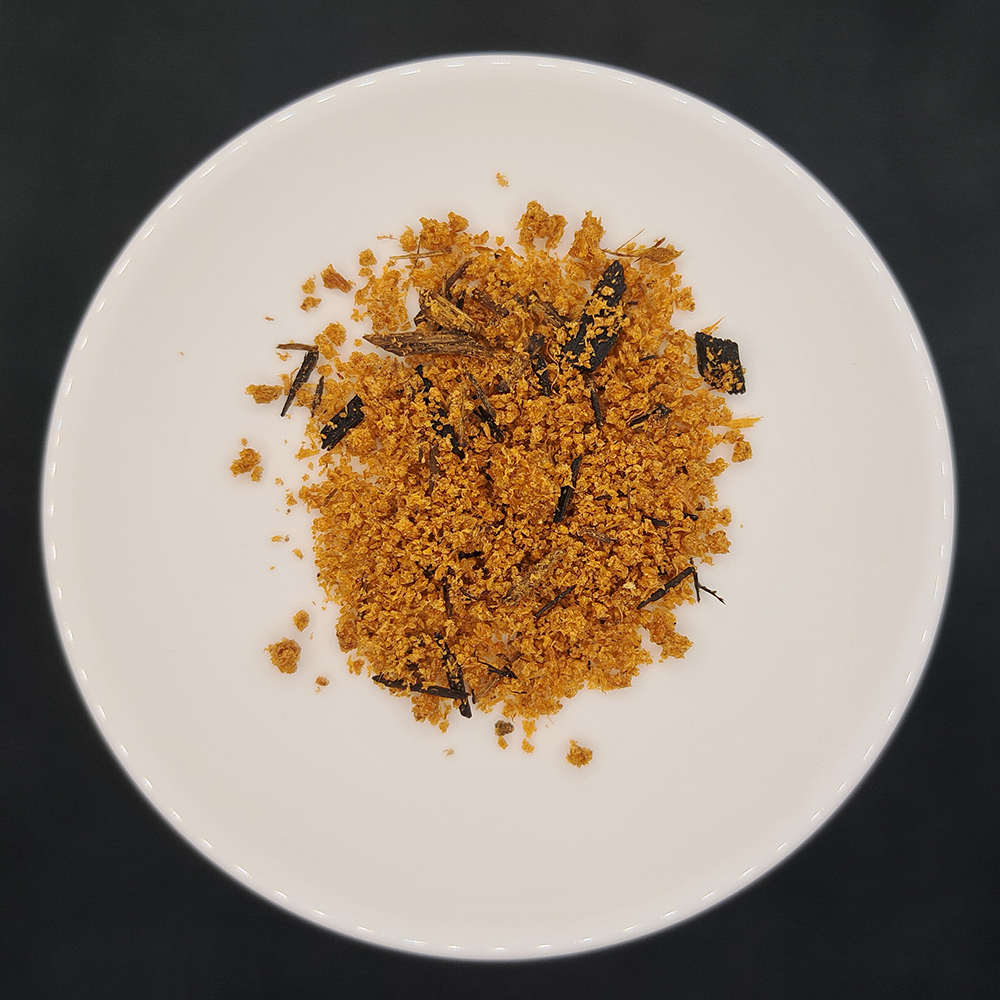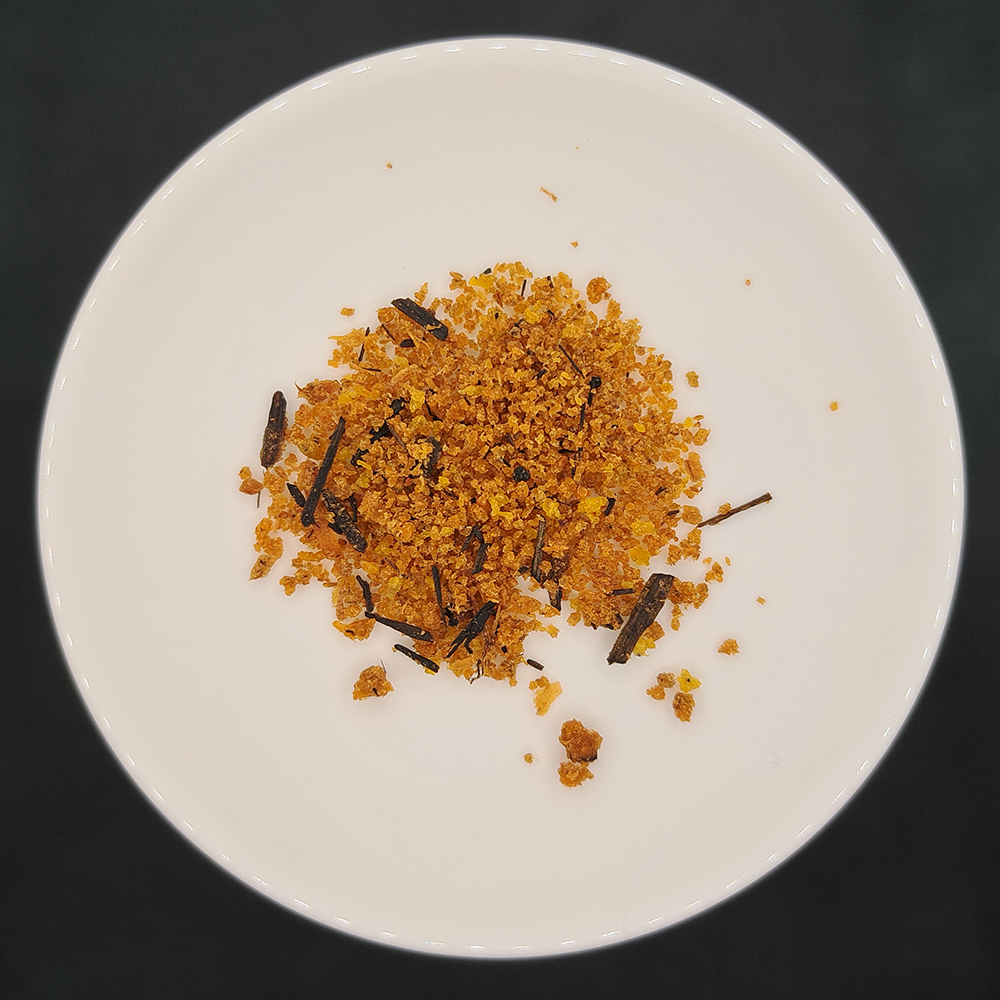Diqa Bulush No. 1 and No. 2 (Rymer Shop)
These samples are part of a package my friend Povilas put together for me. He purchased them at Rymer, along with two other bakhoors, of which he also shared samples with me.
Rymer sells all their bakhoors in simple tin containers, which I, personally, appreciate. They also show the contents in their product pictures. As beautiful as some of the fancy bakhoor jars and containers are, one often wonders whether you’re paying more for the packaging than the actual product.
Currently, I see 16 different bakhoor varieties in Rymer’s assortment, priced between €8.29 and €20.79 for 25g each.
Rymer states that their bakhoors are local, Omani products, primarily made for personal use, either at home or in small workshops, mostly by women.
I tried the two Diqa Bulush bakhoors in reverse order, so I’m reviewing No. 2 first. Since its description references No. 1 for comparison, it makes sense to have the reviews combined.
I used both bakhoors on a tealight incense heater.
Diqa Bulush No. 2
“A somewhat woodier version compared to No. 1, less sweet, complemented by notes of oregano.”
Price: €12.46 (299 Kč) – approx. €0.50/g

The description is puzzling for both Povilas and me, as neither of us can detect the sandalwood mentioned in No. 1.
To me, Diqa Bulush No. 2 primarily smells of rose; floral and soft. It combines the sugary sweetness of some rose scents with fresher components that keep the scent from becoming cloying.
I can’t say I recognise oregano, but there’s definitely something green in the composition.
After about 10–15 minutes, when the rose cloud dissipates, a few additional floral notes emerge. By this stage, the bakhoor has already darkened significantly. The scent vaguely reminds me of some Japanese incense, possibly Nippon Kodo’s Shibayama.
Around 5 minutes later, there’s a “final phase” where the scent shifts to a bittersweet aroma of caramelised sugar as the bakhoor turns dark brown to black. It’s not particularly unpleasant; the scent intensity is relatively low, but the note stands out. I imagine it might be more pronounced if Diqa Bulush was put on charcoal, where the sugar would actually burn.
I find Diqa Bulush No. 2 pleasant, but it’s not something I would purchase for myself.
For a rose scent enthusiast looking for a milder bakhoor, I could see myself recommending it.
Diqa Bulush No. 1
“A typical bakhoor dominated by sandalwood, with light notes of exotic flowers.”
Price: €10.38 (249 Kč) – approx. €0.42/g

Diqa Bulush No. 1 is also very floral, though I’m unsure if I detect rose. Flowers like lilies, tulips, and perhaps some jasmine come to mind, though I’m not certain how accurate this is. The character is livelier and more sparkling than No. 2, which, with its sugary rose note, also feels sweeter.
The scent is in a similar vine as what emerges with No. 2 after about 10 minutes, but it’s more defined and includes a hint of amber in the background.
Additionally, I notice that No. 1 initially has a faint soapy undertone, though it’s subtle enough not to bother me.
I can’t detect any sandalwood.
No. 1 has a pleasant scent, which I find slightly more interesting than No. 2, even though it seems to be the base of the second version.
Like No. 2, Diqa Bulush No. 1 is quite mild and develops a bitter caramel aroma towards the end.
Summary
Both Diqa Bulush varients are significantly less intense than one might expect from bakhoor. I find this pleasant, but anyone expecting the opposite might be disappointed. These are not bakhoors that can easily fill an entire house with fragrance.
The after-smell of both is again relatively subtle and not particularly long-lasting.
As mentioned in the reviews, both have a slightly bitter scent towards the end, which isn’t unpleasant but stands out. Sugar is often listed as a base ingredient in bakhoor and similar incense. However, this scent is quite rare, as Povilas confirmed. It’s possible that the potency of other bakhoors is masking this aroma. However, the type of sugar used does play a role.
Scent-wise, I find both varieties pleasant and unobtrusive. They are friendly, warm floral fragrances. While they don’t entirely match my personal taste, I’d still prefer them over any reed diffuser.
Note about Rymer:
Although the ordering process was somewhat complicated, I really wanted to order from Rymer because I’m really impressed with their range. Not only when it comes to incense sticks but also loose incense.
The shop’s system only allows orders within the Czech Republic and Slovakia, so I asked if they would also ship to other EU countries, which they were happy to do upon request.
Michael Rymer, the owner, was very helpful and responsive throughout the process (in English). I was told to enter my real address in the note field at checkout and select the Czech Republic and 54401 as the postal code to complete the order.
Payment options include bank transfer and a few others – no PayPal.
A while after receiving the automated invoice, I was sent a second invoice with the actual shipping costs. Originally, shipping was supposed to cost €20 – which I found quite high but accepted nonetheless. Later, Mr. Rymer sent me another email informing me that it had cost less than expected and offered me a €6 refund. So, the actual shipping costs were €14, which was roughly what I had expected.
He could have just said nothing and kept the money, but he didn’t, and I think that’s very decent.
